In The Beginning: The many roles of Adam
The creation accounts found in the first and second chapters of Genesis are portions of the Bible with which most Catholics are typically pretty familiar. We actually had a portion read at Mass a couple of weeks ago and we’ll hear a further extract at the Easter Vigil in a couple of weeks’ time.
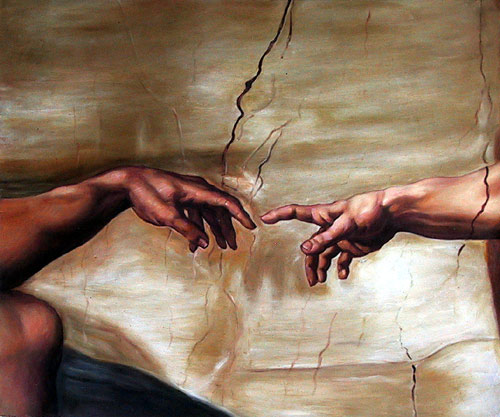
In today’s post I’d like to draw out a few things we learn about Adam in Genesis. In particular, I’d like to look at the five roles essential to Adam’s identity…
Discovering the Adam
So, what roles do we find Adam playing in the first two chapters of Genesis?
1. Adam was a son of God
It often comes as a surprise to people to hear Adam described as a son of God. However, that is the message of the Scriptures.
In the first chapter of Genesis, God says “Let us make man in our image, after our likeness”. We’re used to hearing this phrase, but what do “image” and “likeness” actually mean? Well, we see these words used again a little later in the Genesis account, where we read about the birth of Seth, Adam’s third child:
…[Adam] became the father of a son in his own likeness, after his image, and named him Seth.
– Genesis 5:3
It is clear from this verse that “image” and “likeness” refer to sonship. Seth was the son of Adam since he bore his image and likeness, and likewise, since he bore God’s image and likeness, Adam was a son of God.
2. Adam is a bridegroom
The next role of Adam is that of bridegroom. Upon seeing Eve, the crown of creation, Adam couldn’t help but burst into ecstatic poetry:
Lord God…brought [the woman] to the man. Then the man said,
“This at last is bone of my bones
and flesh of my flesh;
she shall be called Woman,
because she was taken out of Man.”
– Genesis 2:22-23
Ever since that day, men have learned poetry for the same reason…
John Keating: Language was developed for one endeavor, and that is… Mr. Perry?
Neil: To communicate.
John Keating: No! To woo women!
– Dead Poets Society
The words Adam uses here seem strange to us. After all, when I see a beautiful woman, I don’t typically exclaim “bone of my bone!” or “flesh of my flesh!”. I personally just let the English accent work it’s magic 🙂 The language that Adam uses here is covenant language, declaring that Eve is his flesh and blood, his family, his wife.
3. Adam is a priest
This is another surprising assertion, that Adam is a priest. However, it shouldn’t really be that shocking. After all, if the cosmos is a temple, then Eden is the garden sanctuary and what do we have in sanctuaries, if not priests?
In my post about chapter one I mentioned that the selection of Hebrew words in the text holds some important clues. Likewise, we find interesting word choices in chapter two of Genesis where Adam is given his job description:
And the LORD God took the man, and put him into the garden of Eden to dress it and to keep it.
– Genesis 2:15
The phrase of interest here is “to dress it and keep [the Garden]”. Now, we might wonder, what on earth does horticulture have to do with priesthood? Well, the clue lies in the Hebrew verbs rendered as “to dress” and “to keep” (I’m using the King James Version here). These could equally be rendered as “to serve” and “to guard”. The Hebrew words which underly the text here are abad and shamar, respectively, and we find them side-by-side in one other place:
And [the priests] shall keep (shamar) his charge, and the charge of the whole congregation before the tabernacle of the congregation, to do the service (abodah) of the tabernacle. And they shall keep (shamar) all the instruments of the tabernacle of the congregation, and the charge of the children of Israel, to do the service (abodah) of the tabernacle. – Numbers 3:7-8
This passage concerns the duties of the priests in the Tabernacle, Israel’s mobile temple in the wilderness. Therefore, to Israelite ears, Adam’s commission “to dress it and keep [the Garden]” would have had liturgical and priestly connotations. In fact, there is an extremely strong link between Eden, the Tabernacle and Solomon’s Temple, but I’ll address that in another post…
4. Adam is a prophet
When most people think of the term “prophet”, they think of someone who predicts the future. However, this isn’t the essential function of a prophet. A prophet is one who speaks on behalf of God, one who is His mouthpiece. If that’s the case, what then does Adam do in Genesis which qualifies him as a prophet? It turns out it’s the naming of the animals:
So out of the ground the Lord God formed every beast of the field and every bird of the air, and brought them to the man to see what he would call them; and whatever the man called every living creature, that was its name.
– Genesis 2:19
It is the prerogative of the creator to name the creation, the artist to name the painting, the designer to designate the moniker for his design. However, it was not Adam who created the animals, but God. However, the Lord grants Adam the privilege of naming them, to speak on God’s behalf, granting to him the grace of prophethood.
5. Adam is a king
So far we have said that Adam was a son of God, a bridegroom, a priest and even a prophet. However, I’d also assert that Adam was a King! What gives him his royal status? Well, a king is one who rules a land:
Then God said, “Let us make man in our image, after our likeness; and let them have dominion over the fish of the sea, and over the birds of the air, and over the cattle, and over all the earth, and over every creeping thing that creeps upon the earth.”
– Genesis 1:26
We see from this extract that Adam is given “dominion”, rulership over the land and the creatures, thus making him a king.
The Original Glory before the Original Sin
All of this is theologically rather interesting, but is it really that important? Is it of any practical use? I would suggest that it’s of paramount importance and that appropriating these truths makes all the difference in the world.
You see, this description of Adam points to the original state of affairs. The first two chapters of Genesis describe how things were prior to the Fall which is recorded in the subsequent chapter when sin entered the world. We sometimes think that to be sinful is to be human. It is, however, the complete opposite. Sin does not make us human, but makes us less human, less like the factory blueprint we see in the early chapters. It is therefore these first two chapters to which we must look to understand clearly our anthropology, our true identity as human beings.
In a future post, we’ll look at how Jesus exercised the roles of Adam and how all Christians are called to do the same…
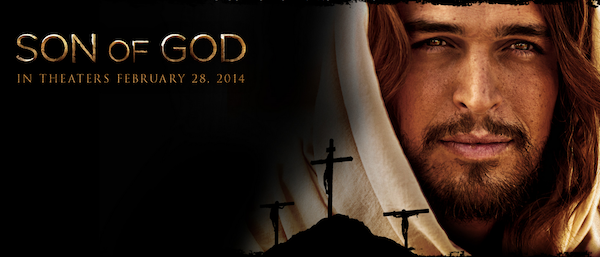

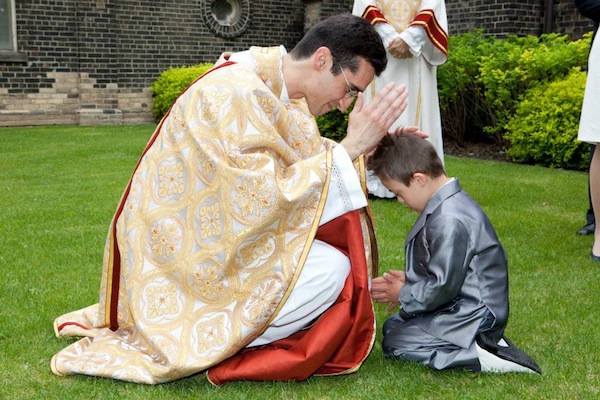
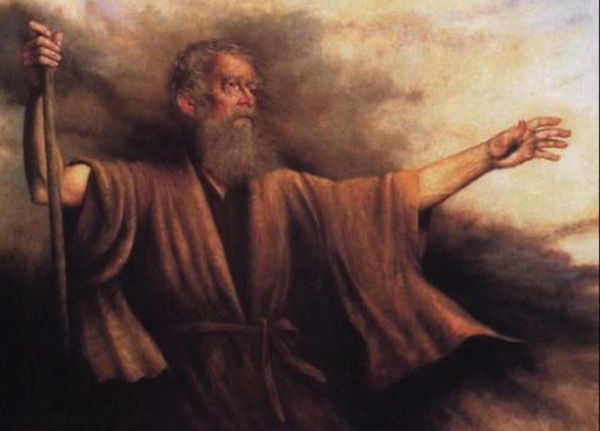

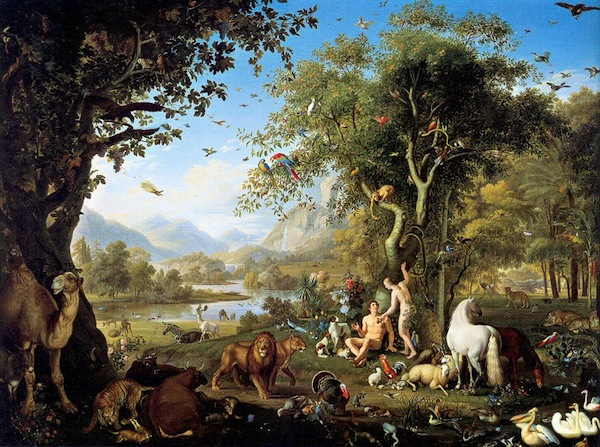
The bit about Adam as bridegroom reminded me of a song from a band I discovered recently that plays on (and quotes) that covenant language/the creation of Eve: https://www.youtube.com/watch?v=Hd9vh89To4M
Adam as a king hadn’t been something I’d considered before. However, the priestly and kingly roles seem very similar to me, as you present them, i.e., as both tend to keep watch and help guard/protect those in their care.
There certainly is a close relationship between all these roles. For example, think of Melchizedek, the priest-king of Salem.
Another example is my own namesake, David. He was King of Israel, a prophet (cf. the Psalms), and also performed some priestly actions, leading Israel in worship (2 Samuel 6:14) and ate the bread of the presence (1 Samuel 21:4).
True, the first reading this past Sunday was Samuel anointing David as king… I proclaimed that reading at mass. 🙂
Actually, come to think of it, we’re all named priest, prophet and king at baptism…
>Actually, come to think of it, we’re all named priest, prophet and king at baptism…
That’s Saturday’s post 🙂
🙂 I’ll look forward it, then.
Hi there! In part 4 you say that Adam’s role of prophet can be seen by his naming of the animals…wouldn’t that fall under the category of “king” or “ruler” instead of prophet? I’m convinced that what “makes him a prophet” is seeing that he passed on God’s commandment about the tree to Eve; we see in Genesis 3:2 as Eve repeating that commandment to the serpent, though she was not yet created when God gave Adam that commandment (Genesis 2:26). Therefore, Adam was God’s mouthpiece (prophet) to Eve. Yes, no?
Hey Taylor, welcome to Restless Pilgrim!
I think there is some aspect of dominion & kingship related to the naming of the animals. However, I still think it points to his role as a prophet. Here’s why…
When a sculpture is produced, who gets to name it? The artist, right? When a picture is painted, who decides its title? The creator, right?
So, who created the animals? God. Yet who gets to name them? Adam. Adam is speaking on behalf of God then when he names the animals. Someone who speaks on behalf of God is called…a prophet.
This logic is used by Dr. John Bergsma in his book “Bible Basics for Catholics”.
I hadn’t considered before the prophethood of Adam conveying God’s commands to Eve. It’s a good point 🙂
Excellent points! I especially concur with the explanation about Adam as King and the original nature of human beings before the fall. Jesus is called the King of Kings – but he’s also the “last Adam” or “second Adam”. Doesn’t that mean that if Adam hadn’t fallen, he would have been the first sinless king in a lineage of kings in the Kingdom of Heaven on Earth?
Hey Alan, welcome to Restless Pilgrim 🙂
As for what would have happened without the Fall of Adam, it’s hard to say and we’re definitely in the realm of speculation, but you suggestion makes sense to me…
And I like the theme quote for your blog, “We are travellers…not yet in our native land”. It would seem to me that the native land we seek is the native land that God created in the garden of Eden – a land ruled by Adam/Christ as King. That’s what the Jewish people wanted to establish in Israel – except that they missed the coming of the king when he appeared in the midst of them. The 2,000 year history of Christianity has been a repeat of the 2,000 year history of the Jewish people, except on a worldwide scale, but with the same goal.
If you’re interested, I explore that theme in a recent talk I gave, What does it mean to be a Restless Pilgrim?